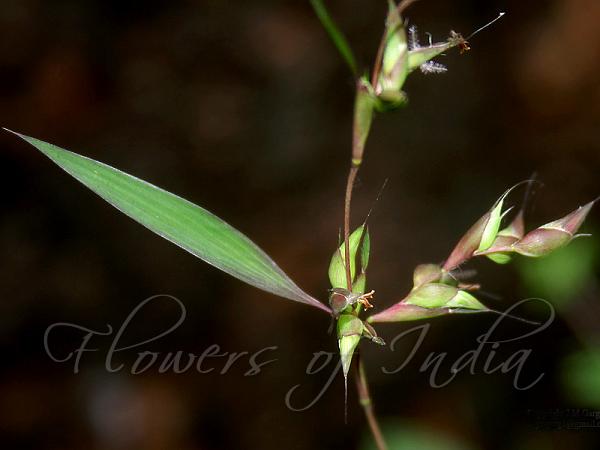|
| Mauritian Grass |
|

|

| File size | 110426 |
| Original date | 10/11/09 12:59 PM |
| Resolution | 800 x 600 |
| Flash | Flash fired, red-eye reduction |
| Focal length | 55.0mm |
| Exposure time | 1/125s |
| Aperture | 5.6 |
| Focus Distance | |
| Metering Mode | Multi-segment |
| Camera make | Canon |
| Camera model | Canon EOS 350D DIGITAL |
| Sensor type |
|
|
|
|
Photo: |
Botanical name: Apluda mutica Family: Poaceae (Grass family)
Synonyms: Apluda aristata, Apluda varia
Synonyms: Apluda aristata, Apluda varia
Mauritian Grass is a rambling perennial grass, with stems up to about 3 m
long, rooting from the lower nodes. Leaf-blades are flat, 5-25 cm long,
2-10 mm wide, cut-off at the tip. False panicle is linear, interrupted,
3.4 cm long. Spatheole narrowly ovate in side view, 3.5-10 mm long,
acuminate. Stalkless spikelets are 2-6 mm long, lower glume narrowly
elliptic-lanceolate; upper lemma deeply bifid with an awn 4-12 mm long or
entire to emarginate and awnless. Stalked spikelets are broadly
lanceshaped, the larger 2-5 mm long, stalks narrowly oblong, 2.4 cm long.
This is considered to be a fairly good fodder grass and is readily eaten
by cattle when young. It is very common in the plains and at low elevation
in the Himalayas. In hedges and bushy places it usually assumes a climbing
habit. It often constitutes a large part of the undergrowth in forests.
Flowering: August-November.
| Identification credit: Anil Kumar | Photographed in Ananthagiri HIll forest, Andhra Pradesh. |
• Is this flower misidentified? If yes,